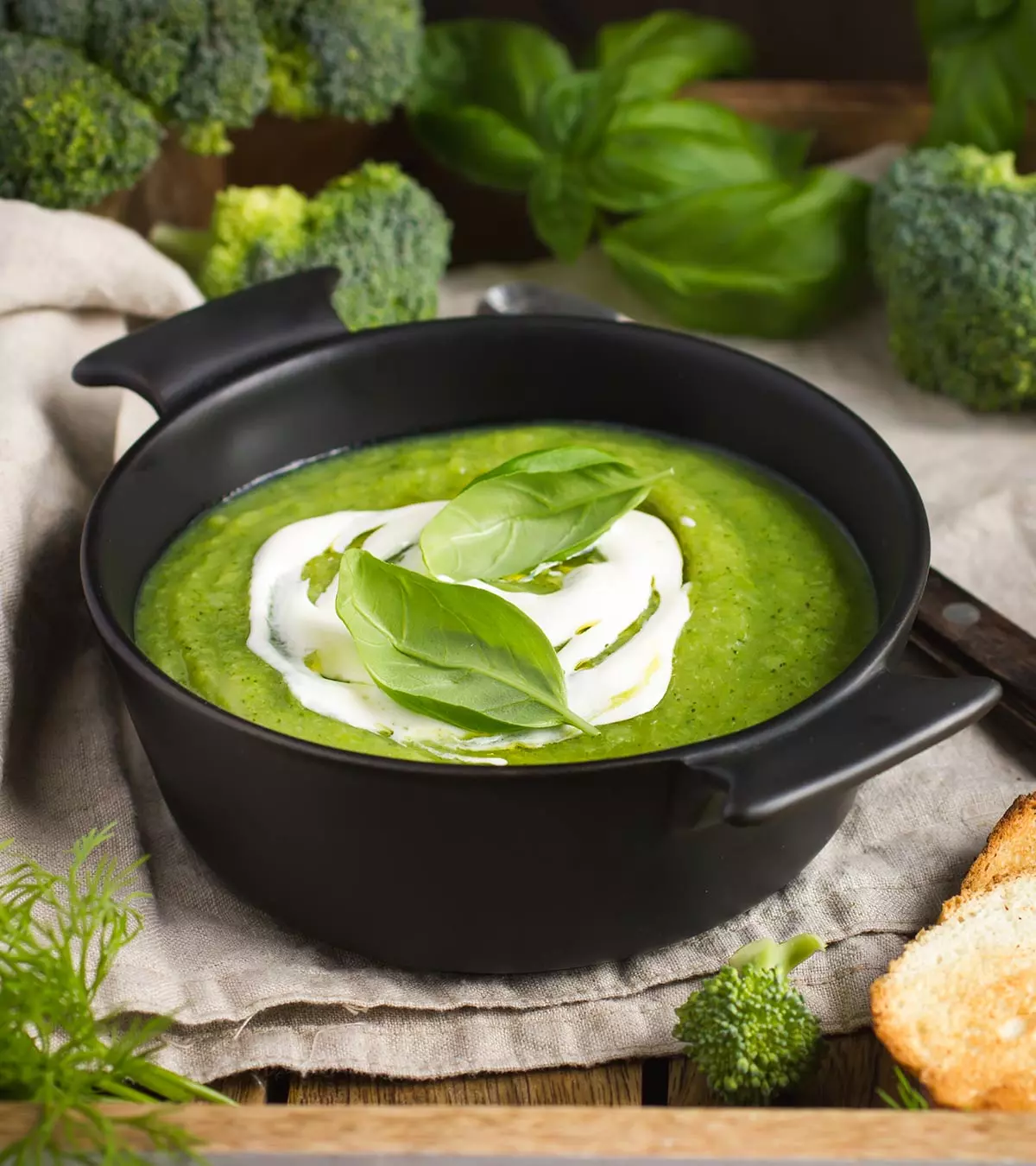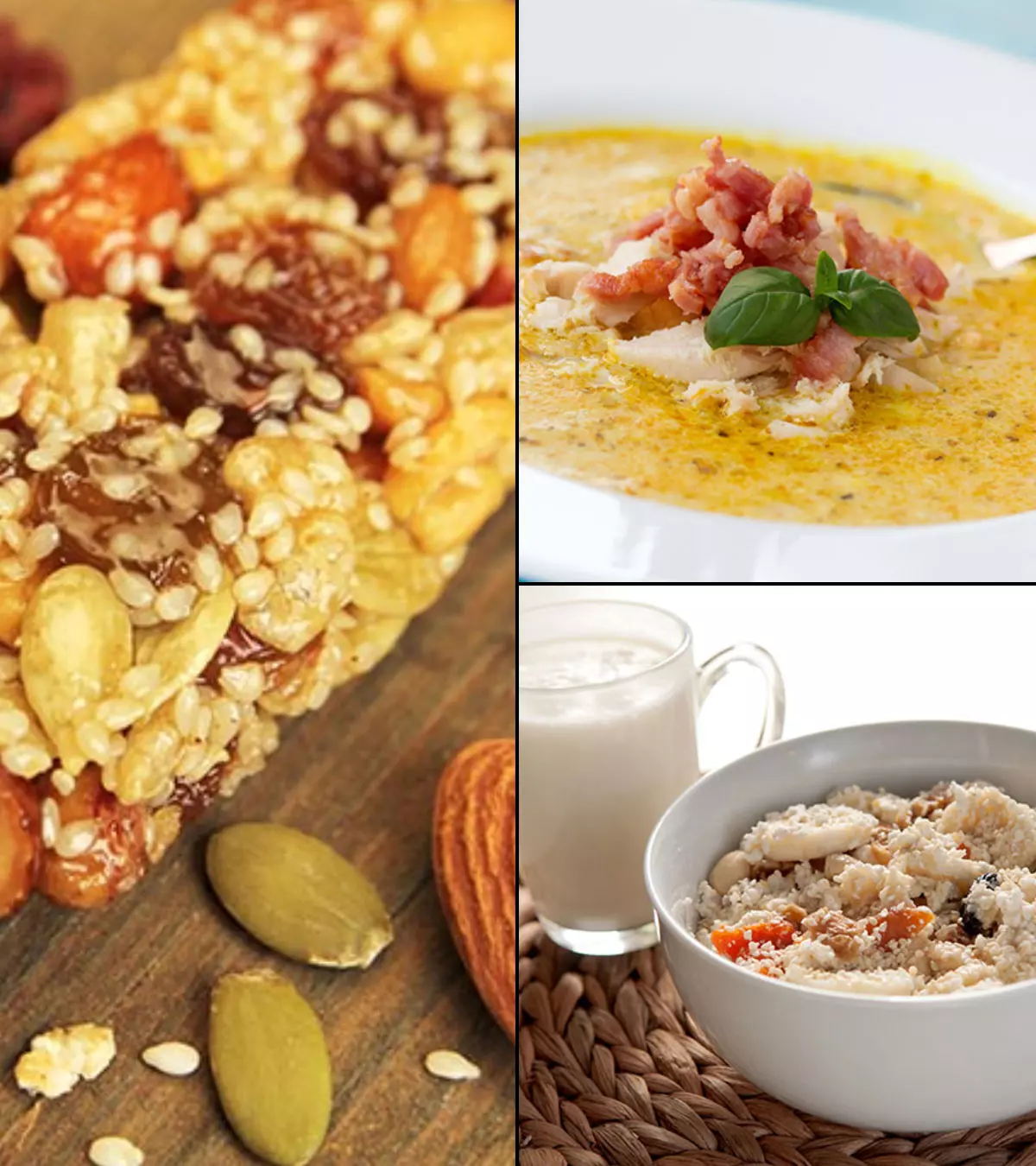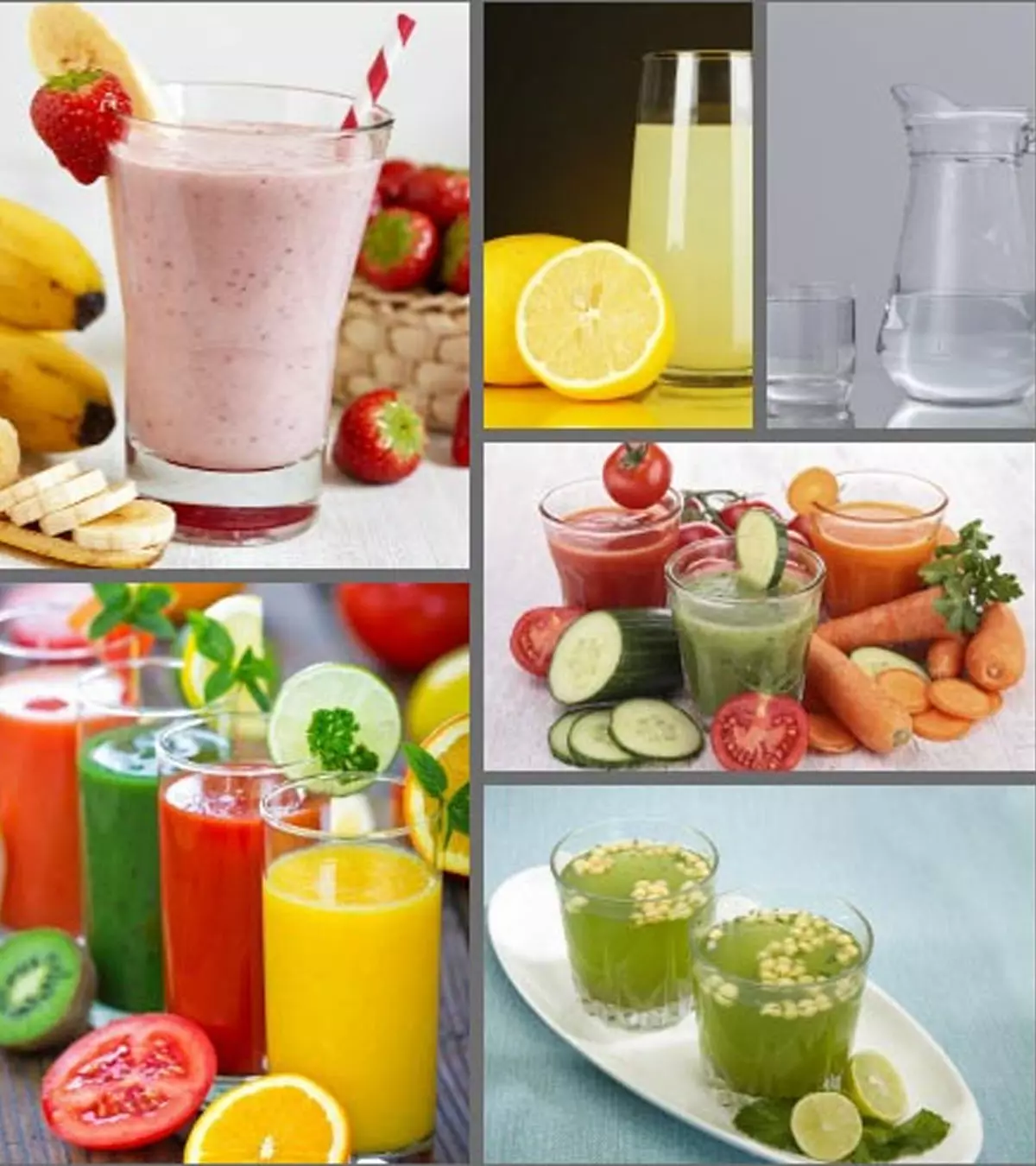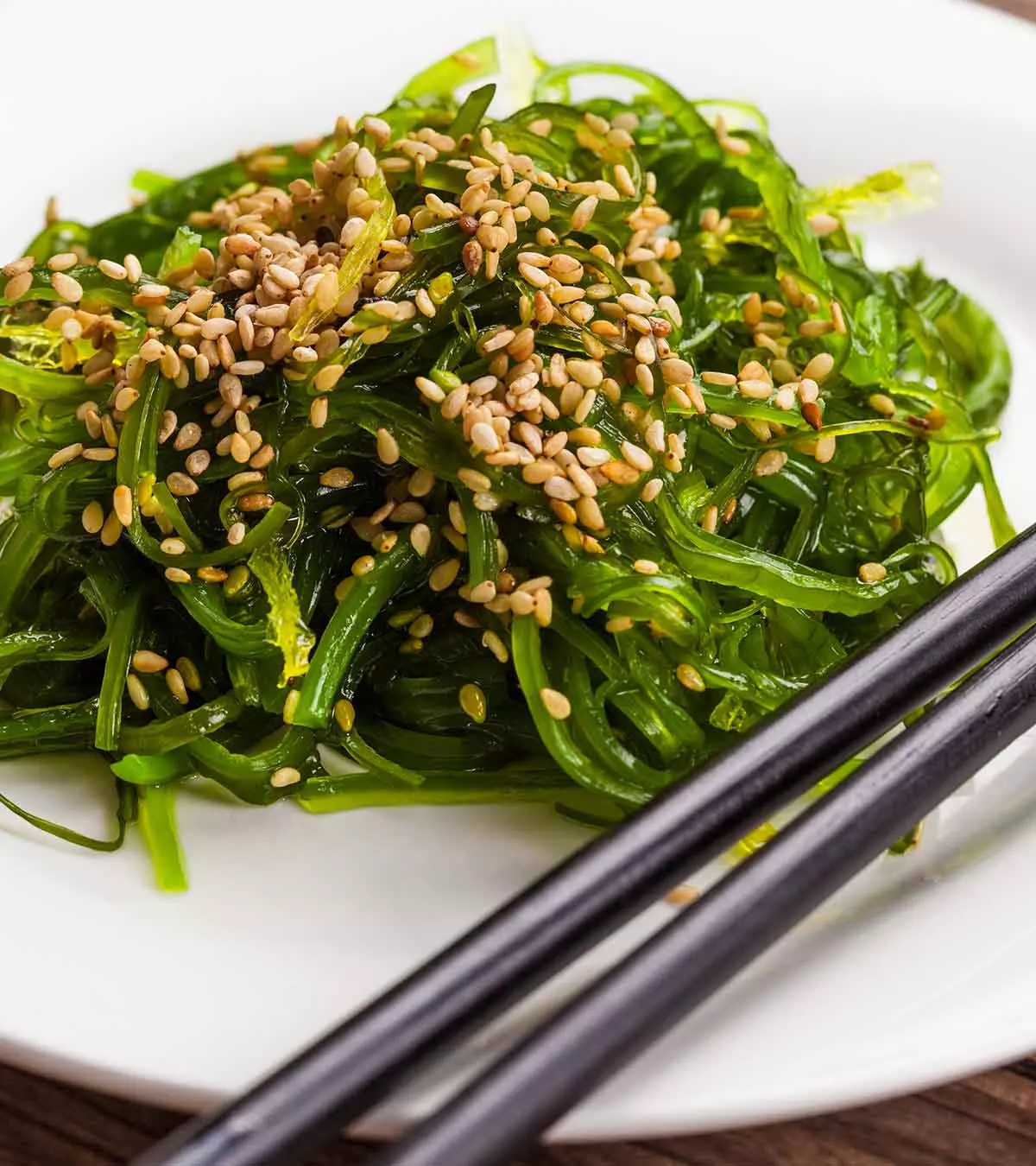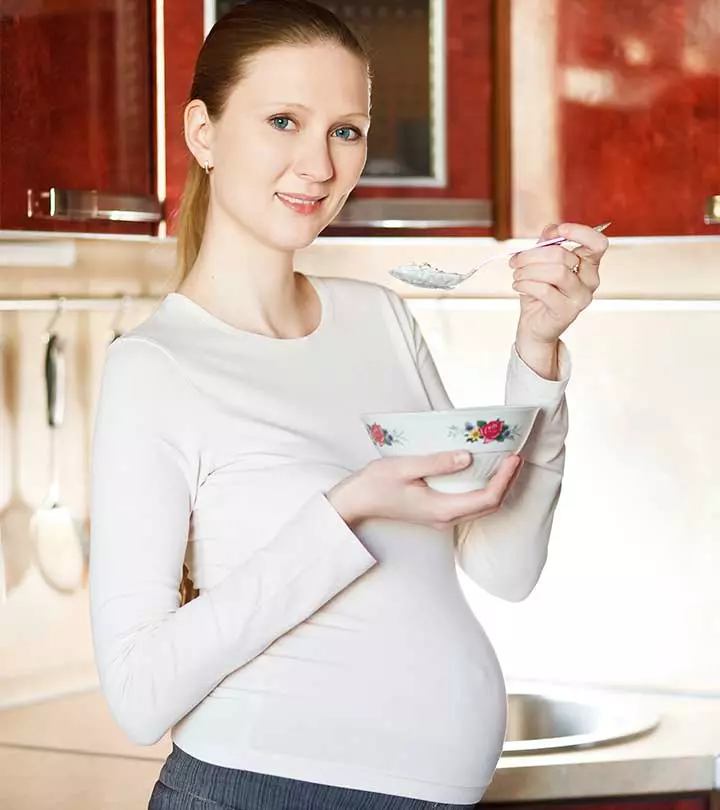
Image: Shutterstock
Maintaining a balanced diet during pregnancy is crucial, as the nutrients you consume directly affect your health and your baby’s development. And in your endeavor to remain healthy, you might wonder if it is safe to eat bread during pregnancy. We provide the answer to this question in this post.
Mostly, a packaged loaf of bread is fortified with essential vitamins and minerals, such as iron (1) and folic acid (2), and other essential nutrients. However, choose whole-wheat bread over the other kinds to get the full benefits. Whole-wheat bread is a rich source of fiber, which is an important nutrient required during pregnancy. Having the right amount of fiber in your diet can help keep the symptoms of hemorrhoids or constipation at bay.
Key Pointers
- Fiber, vitamins, and minerals are important nutrients in pregnancy that bread contains.
- Eating bread during pregnancy can boost digestion, maintain cholesterol levels, lower blood pressure, regulate blood sugar, and maintain metabolism.
- Consuming whole wheat bread may lower the risk of developing gallstones and asthma.
- Some expecting women may have difficulty digesting the protein gluten, which is found in bread.
Benefits Of Bread During Pregnancy
Read on to know more about the benefits and side effects of eating bread during pregnancy and learn other important facts.
- Boosts Digestion
Bread made out of whole-wheat flour contains a high proportion of dietary fibers, which help boost digestion. The high-fiber content of the bread may help maintain regular bowel movements and reduce the risk of constipation and diarrhea during pregnancy.
- Maintains Cholesterol Level
The whole grains present in bread are full of dietary fiber, which not only helps you reduce blood cholesterol levels, but also reduces the risk of heart diseases.
- Lowers Blood Pressure
Expecting mommies like you often face the problem of high blood pressure, due to excessive stress and mental fatigue. Consuming bread will help maintain cholesterol and triglyceride levels in your body, thereby reducing the blood pressure level to normal.
- Regulates Blood Sugar

Image: Shutterstock
It is not uncommon for some women to experience diabetes during pregnancy. Pregnancy can cause gestational diabetes. Whole-wheat bread could be a better alternative, but eat it in moderate quantities to prevent sudden changes in blood sugar levels.
- Helps meet your calcium needs
Expecting mommies need a decent quantity of calcium. The calcium content of food helps in the proper growth and development of your baby. Whole-wheat bread contains a moderate proportion of calcium, which is beneficial for the pregnant woman.
- Supplies Vitamin C
Apart from high calcium content, whole grain bread also supplies Vitamin C. Taking vitamin C during pregnancy in recommended amounts prevents deficiencies and boosts your immunity.
- Maintains Metabolism
Whole wheat bread is a rich source of Vitamin B, thiamin, riboflavin and niacin.
All these essential elements help regulate your metabolism.
- Reduces Asthma Risk

Image: Shutterstock
Consuming whole wheat bread during pregnancy also reduces the symptoms of asthma or breathing discomforts in pregnant women.
- Prevent Gallstones
Eating foods high in dietary fiber, like whole wheat bread or cereals made from whole wheat, can help you avoid gallstones.
 Health fact
Health factEssential Nutrients In Bread
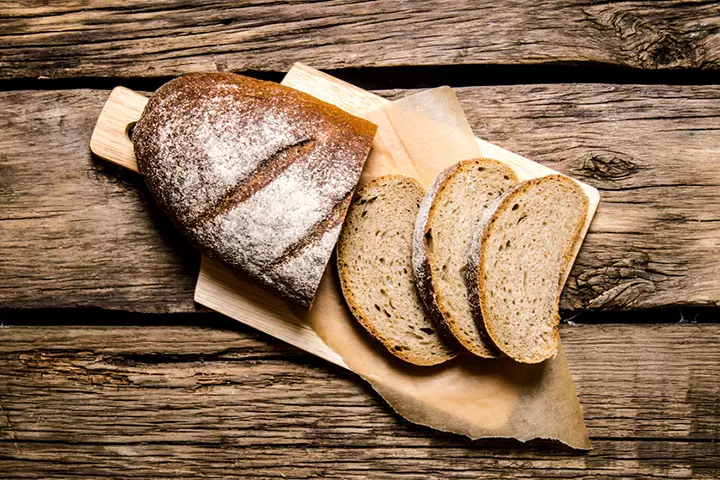
Image: Shutterstock
- Fiber:
Consuming fiber-rich foods during pregnancy benefits both maternal and fetal health. Whole-wheat bread contains a high proportion of bran or dietary fibers, which has many health benefits, including promoting heart health. Moreover, fiber also reduces low-density lipoprotein cholesterol and helps the mother’s well-being.
 Nutrition fact
Nutrition fact- Protein:
Whole-wheat bread contains wheat gluten, which may help the baby’s growth.
- Carbohydrates:
The carbohydrate content of whole wheat bread provides the optimum energy to expecting moms.
- Wheat Germ:
Whole wheat bread contains wheat germ. Wheat germ are rich in nutrients like vitamin E, Omega 3 fatty acids, and folate. These aid in promoting your overall health and minimizing your likelihood of developing inflammation or cardiovascular diseases through appropriate nutrition (5).
A first-time mom, Kate Eskuri, briefs her dietary journey during her first trimester of pregnancy. Sharing how she usually enjoyed consuming bread while pregnant, Katy says, “If I wanted bread, I was having gluten-free, simple ingredient bread.” She also states that she prefers her gluten-free (GF) bread with peanut butter to add some protein and fat (i).”
Side Effects Of Bread During Pregnancy

Image: Shutterstock
Bread has many benefits for expecting moms, but what about its side effects? Here we list some of them:
- Bread contains gluten, a composite form of protein that is difficult to digest for expecting moms.
- Excessive consumption of refined wheat bread may lead to rapid increases in blood sugar levels, potentially resulting in weight gain and other adverse health effects.
Frequently Asked Questions
1. Can I eat toasted bread or rusk during pregnancy?
Toasted bread or rusk can be safe to eat during pregnancy, as long as it is properly prepared and stored. If you have morning sickness or nausea, having toast at regular intervals may help alleviate your symptoms (6).
2. Which bread is good during pregnancy?
During pregnancy, it is recommended to include a variety of whole grain breads in your diet, as they provide important nutrients such as fiber, vitamins, and minerals. It also helps keep blood sugar levels low (7).
3. What are some tips for choosing healthier bread during pregnancy?
Choose whole grain or whole wheat bread. Check the ingredient list and nutrition label carefully to avoid products containing added sugars, artificial additives, or preservatives. Pick bread labeled as high fiber or fiber-rich to ensure the bread you consume is healthier.
4. What are the differences between white bread and whole-grain bread regarding nutrition during pregnancy?
Whole-grain bread has more fiber, vitamins, proteins, and minerals than white bread. In addition, whole grain bread is often fortified with additional nutrients such as folic acid, omega-3 fatty acids, and calcium that can contribute to a pregnant woman’s dietary needs (9).
Whole-wheat bread is a healthy food choice to add to your pregnancy diet. It is a rich source of vitamins, minerals, and other nutrients. Bread is rich in carbohydrates, fibers, and protein. However, like everything else, bread should also be consumed in moderation. Too much bread can cause a rapid increase in blood sugar levels or may be difficult to digest. Pair your bread with enough vegetables, protein, and healthy fats to make it a complete meal.
Infographic: Precautions To Take When Eating Bread During Pregnancy
If you are a bread-lover, there’s no need to shy away from it during pregnancy. Just ensure you are choosing the best option for yourself. Go through the infographic below to learn the precautions you should take while eating bread.
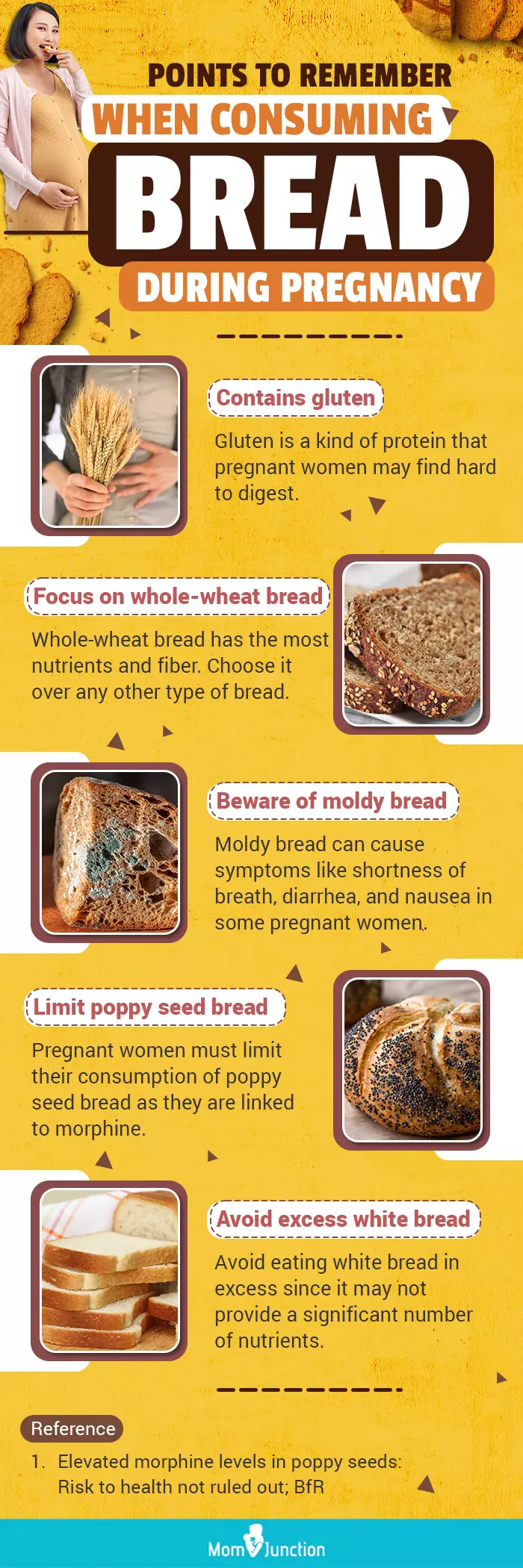
Illustration: Momjunction Design Team
Illustration: Amazing Health Benefits Of Eating Bread During Pregnancy
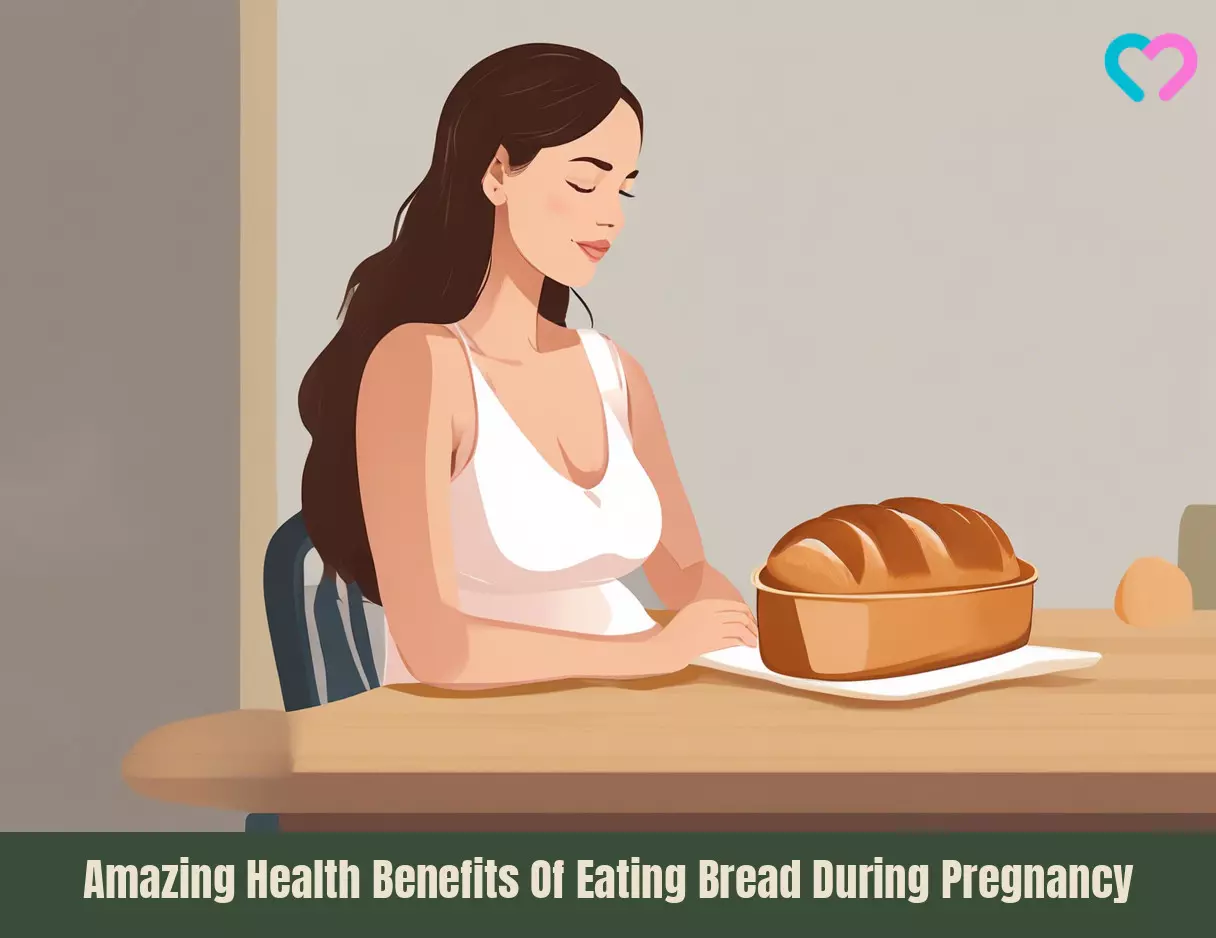
Image: Stable Diffusion/MomJunction Design Team
Personal Experience: Source
MomJunction articles include first-hand experiences to provide you with better insights through real-life narratives. Here are the sources of personal accounts referenced in this article.
i. My personal experience during first trimester (plus my 1st trimester survival kit).https://thefoundationblog.com/blog/first-trimester
References
- Wheat flour fortification with iron and other micronutrients for reducing anaemia and improving iron status in populations
https://www.ncbi.nlm.nih.gov/pmc/articles/PMC8407500/ - Fortification of wheat and maize flour with folic acid for population health outcomes
https://www.ncbi.nlm.nih.gov/pmc/articles/PMC6599881/ - Diet During Pregnancy
https://americanpregnancy.org/healthy-pregnancy/pregnancy-health-wellness/diet-during-pregnancy/ - Five Health Benefits of Eating Bread
https://grainfoodsfoundation.org/five-health-benefits-of-eating-bread/ - Nutritional Recommendations for Cardiovascular Disease Prevention
https://www.ncbi.nlm.nih.gov/pmc/articles/PMC3798927/ - Eating During Pregnancy
https://kidshealth.org/en/parents/eating-pregnancy.html - Diabetes During Pregnancy: Diet Tips
https://www.ucsfhealth.org/education/diabetes-during-pregnancy-diet-tips - Eating safely and well during pregnancy
https://info.health.nz/pregnancy-children/having-a-healthy-pregnancy/healthy-food-and-drinks-during-pregnancy - Which Bread Is Best For You — Whole-Grain, Multigrain or Whole Wheat?
https://health.clevelandclinic.org/bread-best-whole-grain-multigrain-whole-wheat
Community Experiences
Join the conversation and become a part of our nurturing community! Share your stories, experiences, and insights to connect with fellow parents.
Read full bio of Gabrielle Kane
Read full bio of Ria Saha
Read full bio of Swati Patwal
Read full bio of Lorraine Teron














